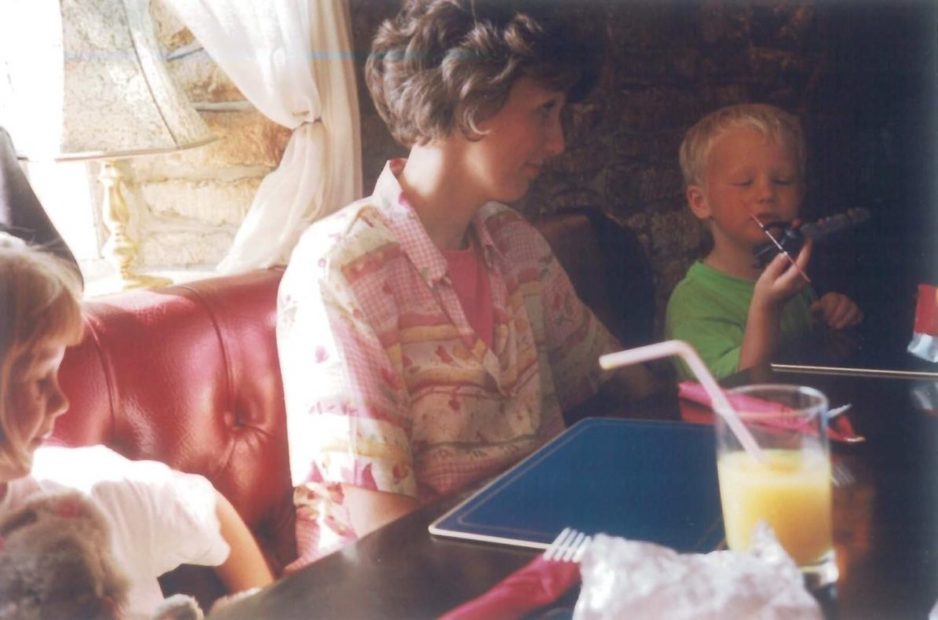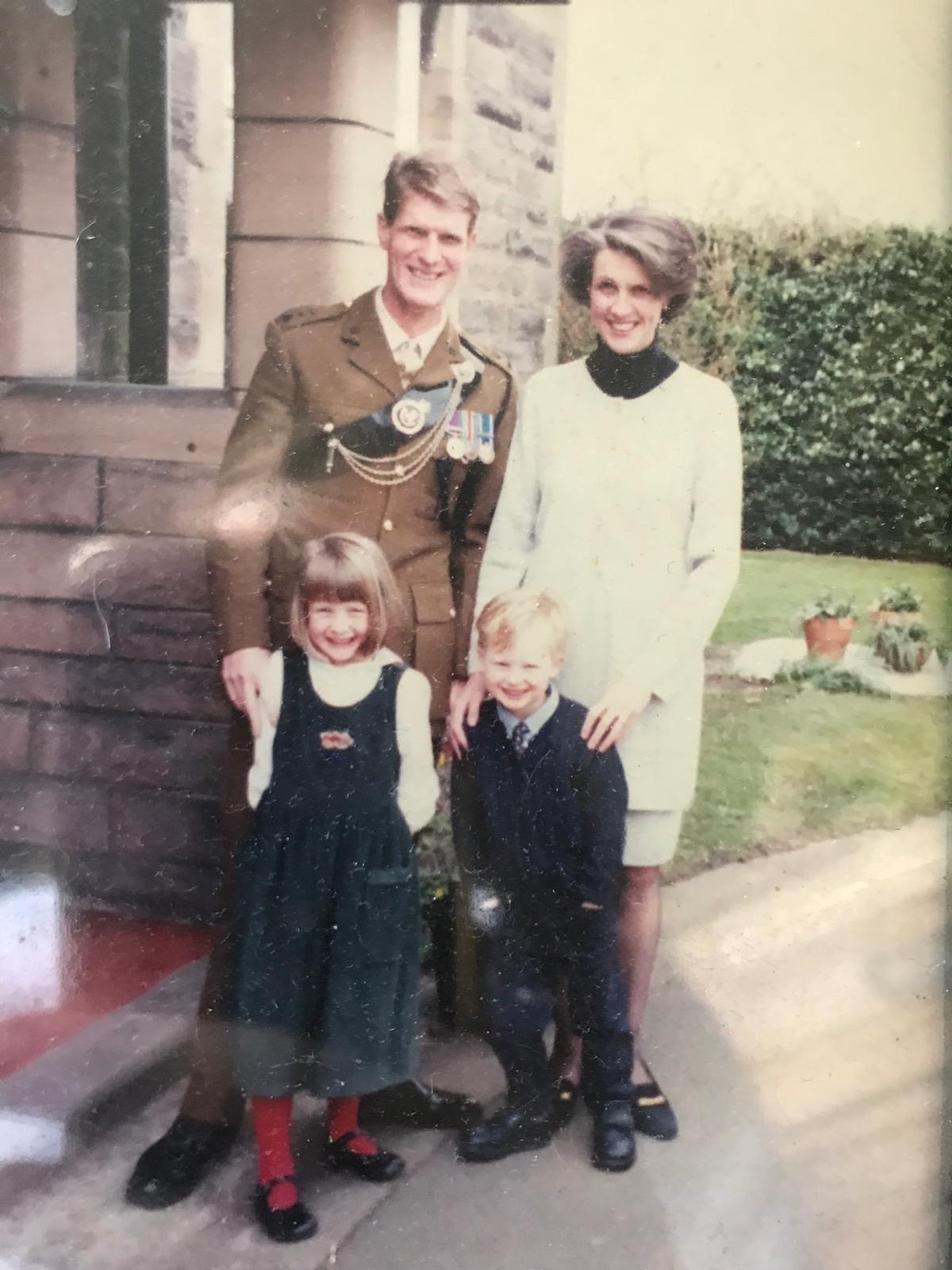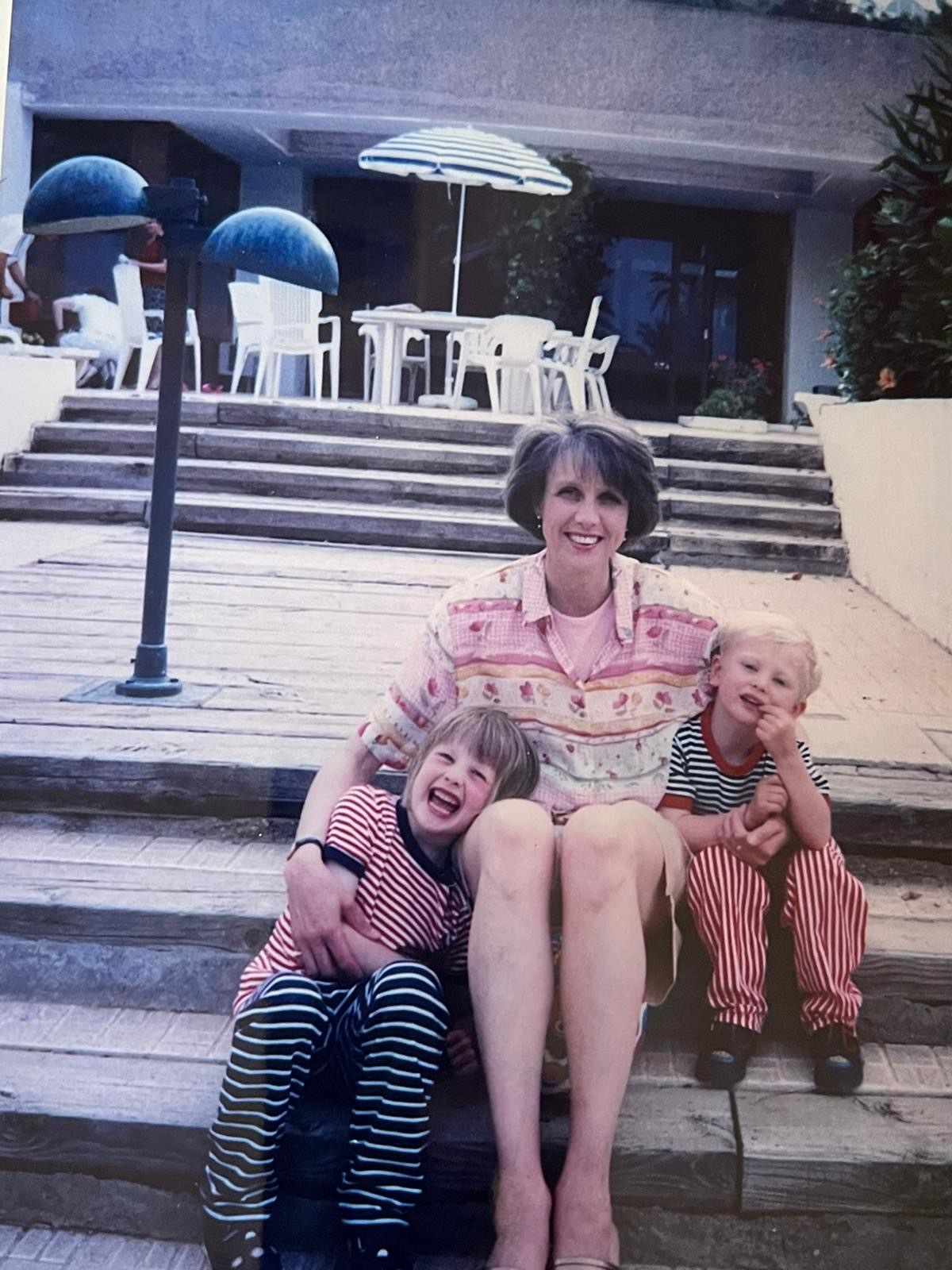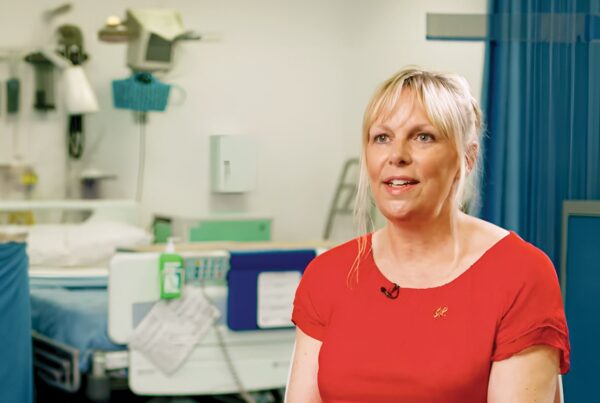Life was about to change forever.
George’s Story
My mum had breast cancer twice within around a three-year period. I was turning ten years old when her breast cancer resurfaced, and I remember struggling to comprehend the seriousness of her condition.
My most vivid memory from that time is entering the back door of our home in Suffolk following a hospital visit and my dad telling me mummy probably wasn’t coming home again. Suddenly, everything hit me like a wave, and I recall sitting slumped on a cold stone floor realising that life was about to change forever.
What support do you remember having when your mum was ill and dying?
Back in 2005, things were quite different. My dad, sister and I saw a bereavement counsellor for a brief period, but it always felt like something we would do in the immediate aftermath of my mum’s passing and then were expected to crack on with life.
I come from a very close extended family full of wonderful, talented, and empathetic people. But for many years after her passing, my mum was rarely spoken about, and life went on. My sister and I spent the majority of our childhood away at boarding school and as a shy and sensitive person, I never felt either able or willing to talk about my mum. Whenever she did come up in conversation I would often get upset and I regretfully convinced myself that suppressing those feelings was the easiest thing to do to keep moving forward with life.
My mum was very ill during the summer of 2005.
While my world around me was feeling apart, I distracted myself with five enthralling tests of Ashes cricket. I vividly remember Andrew Strauss scoring his first day hundred in the final Oval test and the camera panning to Ruth in the crowd as he brought up his three figures.
I’ve remained an avid cricket fan ever since and first came across the Ruth Strauss Foundation during a ‘Red for Ruth’ fundraising day during the Lord’s test.
Having access to the right support is so important.
The Ruth Strauss Foundation’s mission to ensure all families who are told that a parent doesn’t have much longer to live are given easy access to emotional support, immediately struck a chord. Many illnesses and other tragedies are brutal in the speed with which they completely upend people’s lives. Unless you’re a professional or have been through something similar, it’s practically impossible to know what to say when someone is about to lose a parent and that is why having access to the right support is so important.
What would you say to a parent facing a similar situation yours?
Unfortunately, nothing you can say will be able to take that immense pain away for your child. Let them know every day that they are loved and understood. For parents left to raise children on their own, my advice would be to encourage your kids to talk about their mum or dad who are no longer here.
In my family, I always knew I was loved but we were so determined to keep going with life that I can honestly say I didn’t have more than a five-minute conversation about my mother for more than 15 years. Much of this was because I avoided the topic or simply wasn’t ready to process the grief of her passing, but I wish I’d asked more questions and felt more comfortable to talk about with her friends, even if they never knew my mum.
Your child won’t always feel able to talk about their parent’s passing and that’s okay, but I would try and create an environment where they feel they can at any point and to try and cherish the happy memories they have wherever possible.





